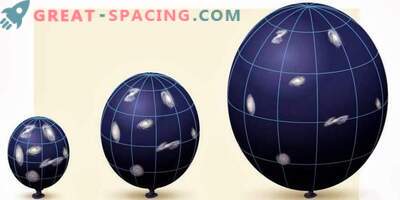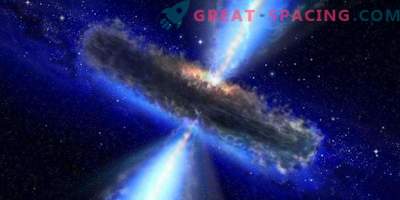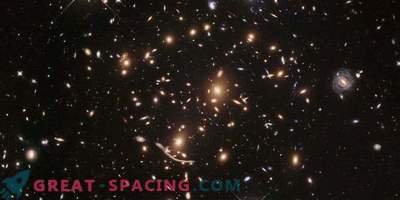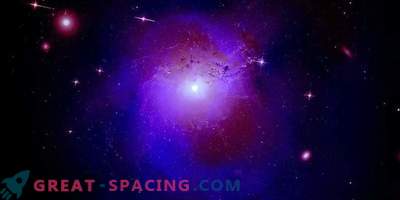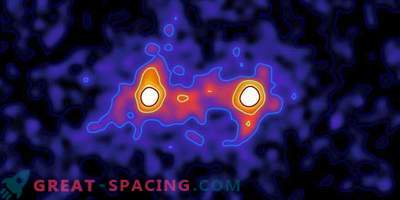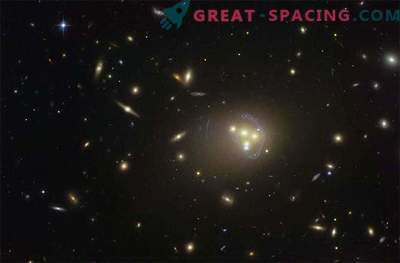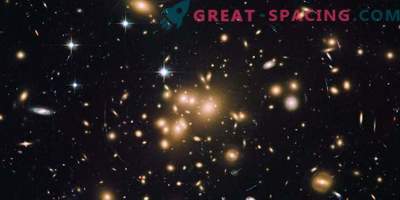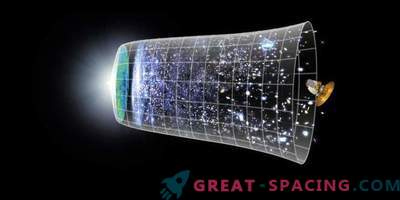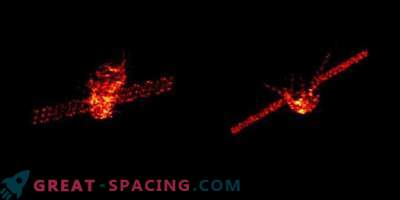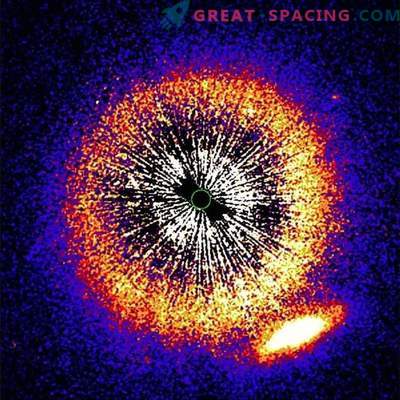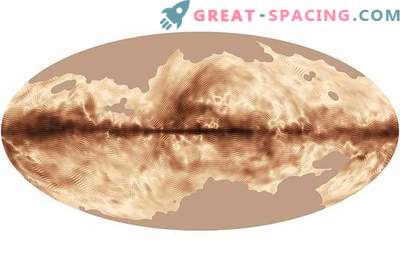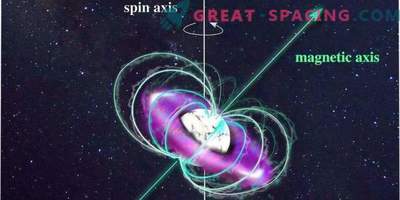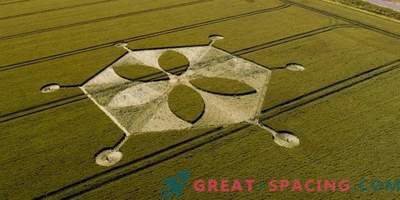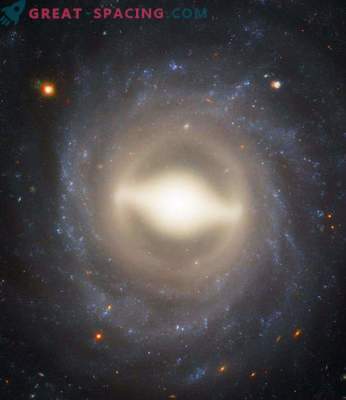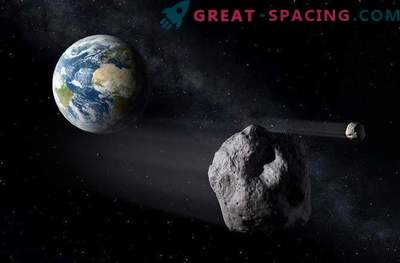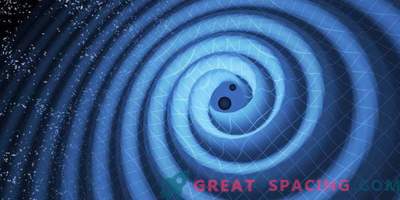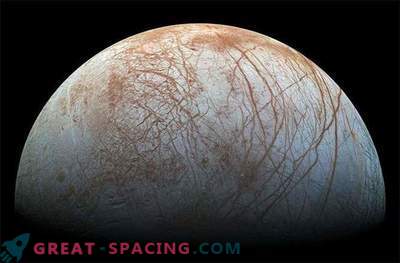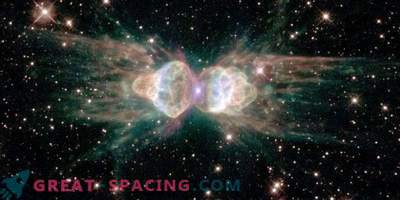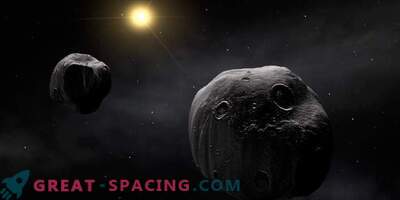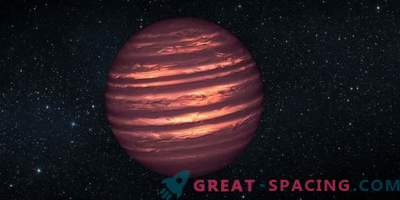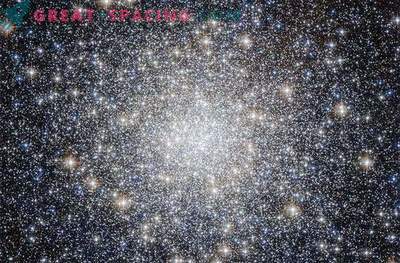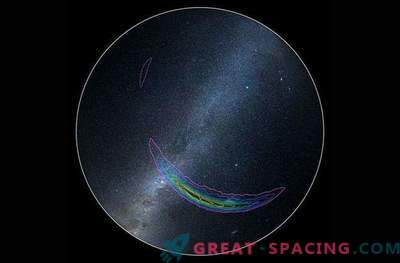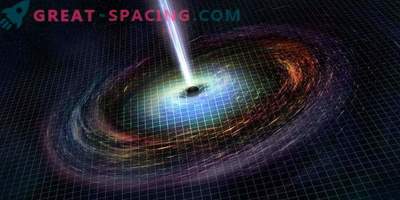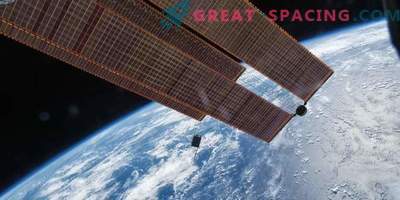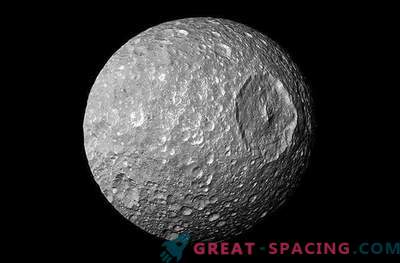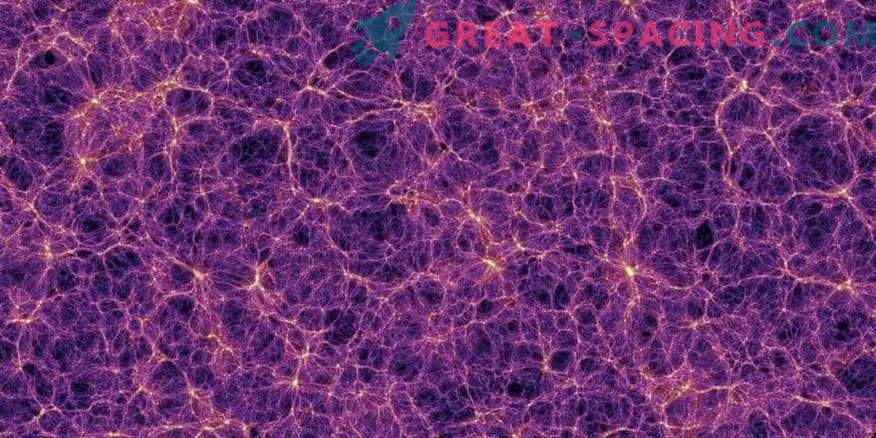
The structure of the universe resembles Swiss cheese with filaments and voids. A new study confirms the idea that we are in one of the voids
In simpler language, we live in real wilderness. The study of Amy Barger in 2013 showed that in a full-scale universe structure, our galaxy is located in a huge void - a spatial region with fewer galaxies than expected. This helps not only to understand that we live in a hole of Swiss cheese, but also explains why there are deviations in the Hubble constant (used to describe the rate of expansion).
Of course, accuracy is important in the calculations. But this is difficult to achieve, since different cosmologists will get a deviation in the results. And all this is due to living in the void. The fact is that in “empty space” there is more matter, which means that the gravitational pressure increases, which oscillates the Hubble constant.
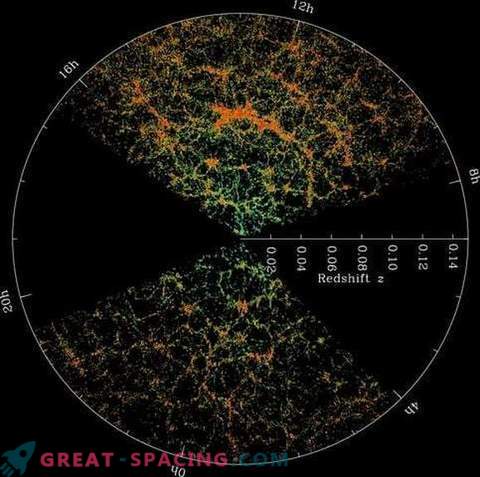
A map of the local Universe, created by the Sloan digital celestial survey. Orange areas have a higher density of galactic clusters and filaments.
To understand the universal structure and this issue, it is important to understand our “cheese” as detailed as possible. The space is represented by voids and filaments (normal matter). The filaments are superclusters and galactic clusters that contain stars, gas and dust. It is believed that dark energy and dark matter left out of sight fill 95% of the universal content. The void in which we live is called KBC. Its radius reaches 1 billion light years. While this is the largest "hole" of the known. Hubble's constant was calculated by supernovae. These are markers that measure distances in deep space. Despite how far they are from galaxies, they release the same amount of energy.
The main information about the early Universe is obtained from relic radiation. We see that the space was hot and homogeneous with small temperature fluctuations. These minor deviations help us to derive the Hubble constant.
Scientists believe that there is no contradiction that we live in a vacuum. And this knowledge is important, since it resolves the shortcomings of some calculation methods and helps to more accurately study the process of expansion.
